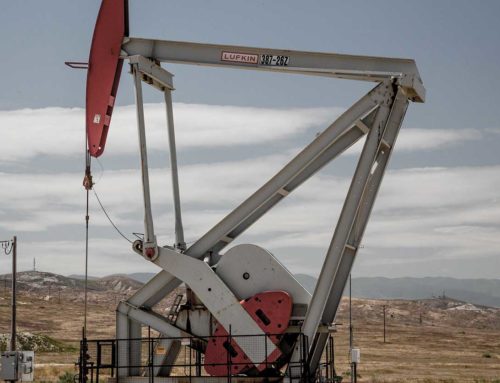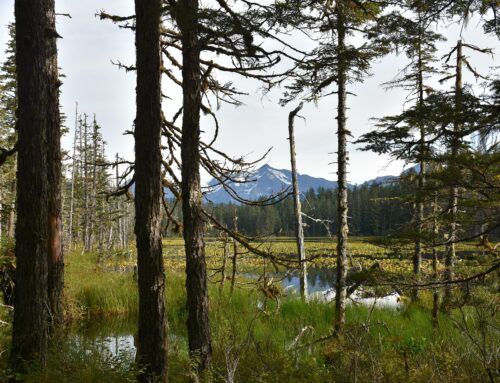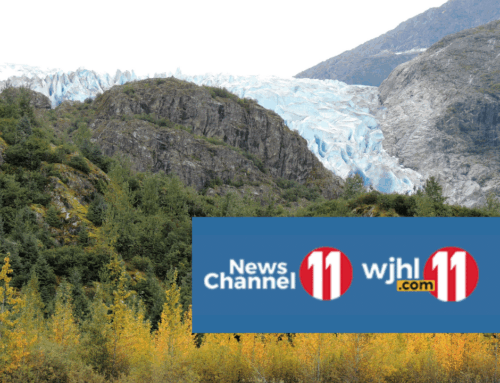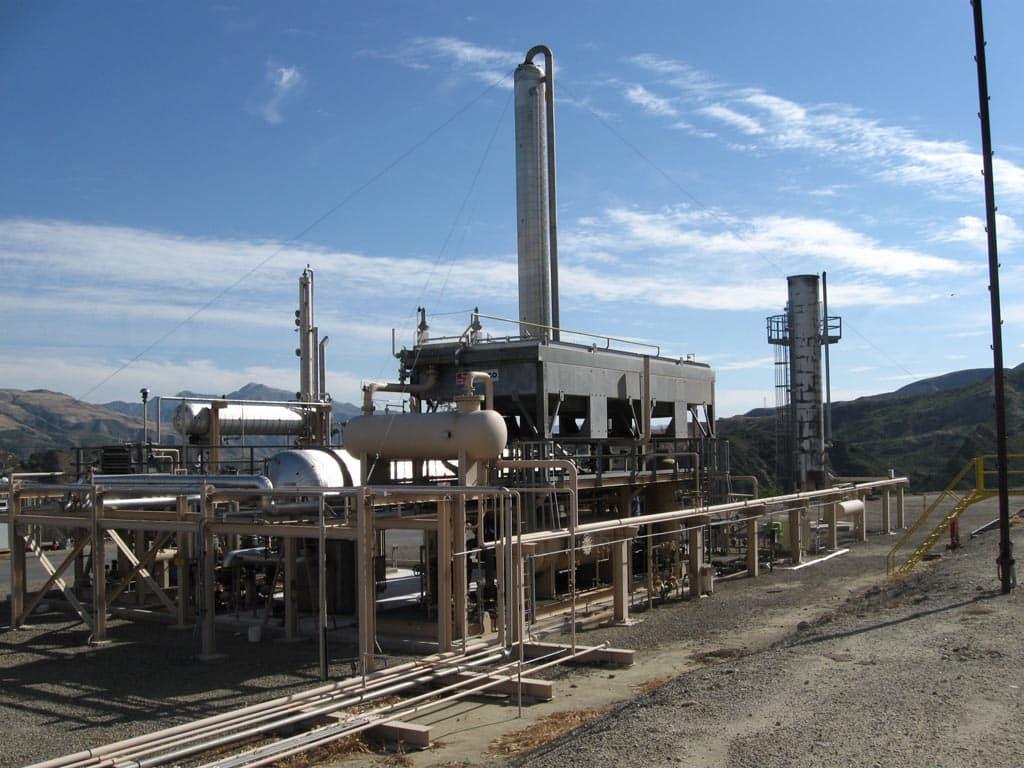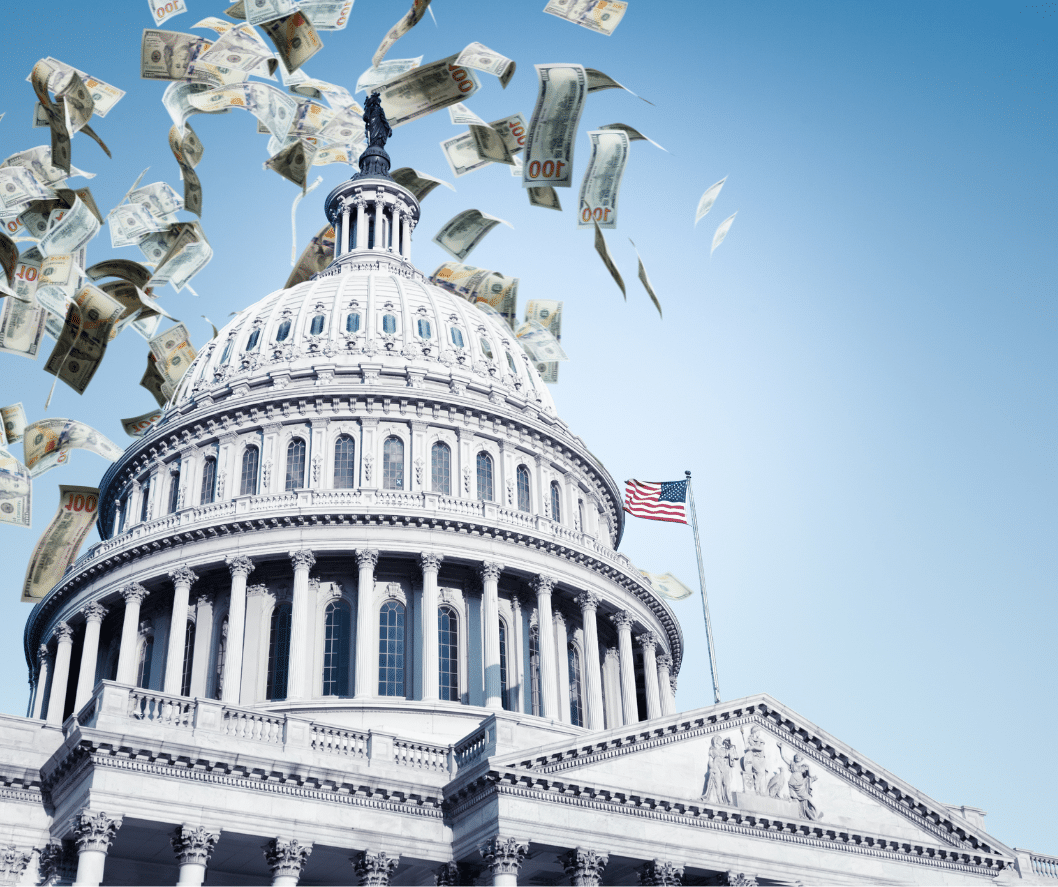A political organization founded by former President Ronald Reagan is on a mission to convince President Trump to preserve the country’s largest national forest from more logging.
Citizens for the Republic, a political action committee founded by Reagan in 1977, just before he ran for president, has for months been calling on the Trump administration to reverse course on its proposal to lift protections for the more than 16-million acre Tongass National Forest in Alaska. In October, the U.S. Forest Service proposed to exempt the Tongass from the so-called “roadless rule,” a decision that, if finalized, would open up 9.5 million acres of untouched forest to logging and development.
The Reagan-founded group is a distinct voice in the chorus of opposition from environmental groups and indigenous communities. Citizens for the Republic is ramping up advocacy, too, tapping into the anti-China sentiment that’s been increasing around the nation, and particularly within the Republican Party, amid the coronavirus pandemic. The group plans to soon send a letter directly to Trump on the issue, signed by prominent conservative figures.
Opening up the Tongass to logging would benefit the Chinese, the main purchasers of the region’s timber, at the expense of U.S. taxpayers, Citizens for the Republic argues.
“If the Trump administration says, ‘Nope, we’re not going to lift the roadless rule,’ it sticks it to China,” said Craig Shirley, one of the leaders of the campaign. “It sends the right message, as far as their care for the environment, to the American people.”
Such a move would also be backed by Alaskans, including many conservatives and Republicans in the state, Shirley argued. Citizens for the Republic commissioned polling earlier this year that found 49% of Alaskans oppose lifting the roadless rule protections. When told lifting the protections would jeopardize Alaska’s wildlife and affect hunting and fishing in the state, that opposition grew to 54%, according to the survey.
“There’s literally no downside,” Shirley, a four-time biographer of Reagan, told the Washington Examiner in a recent interview. “There’s no risk involved for Trump and the Trump administration to say, ‘We’re going to preserve the roadless rule.’”
Exempting the Tongass from the roadless rule is supported by powerful Republicans in the state, though. Alaska Gov. Mike Dunleavy, a Republican, was the one who initially urged Trump to lift the roadless rule protections, according to the Washington Post.
Sen. Lisa Murkowski, the Alaska Republican who chairs the Senate Energy Committee, also strongly supports the Forest Service’s move. “The one-size-fits-all roadless rule is an unnecessary layer of paralyzing regulation that should never have been applied to Alaska,” Murkowski said in an op-ed last fall in the Washington Post.
Nonetheless, Shirley said Citizens for the Republic, with its growing campaign of conservative voices, is hoping the economic realities of the Tongass protections will convince Trump. Logging in the parts of the Tongass where it’s already allowed doesn’t turn a profit, is heavily subsidized, and entirely benefits the Chinese who purchase the majority of the timber, Shirley said.
“The average voter is going to be pretty damn mad if they hear about that,” he added.
An October report from the watchdog group Taxpayers for Common Sense found taxpayers have lost $600 million since 1999 from timber sales in the Tongass.
“The economics don’t bear this out,” said Meredith Trainor, executive director of the Southeast Alaska Conservation Council. “That’s why you’re hearing conservatives increasingly calling on the government to slow down the rollback.”
Environmental advocates also say the Forest Service’s proposal would damage Alaska’s money-making industries such as fishing and tourism that depend on a healthy Tongass.
Kate Glover, a staff attorney with Earthjustice based in Juneau, said Alaska has many tourism operations that take people out on charter cruises and trips to see wildlife in the Tongass, largely in the roadless areas.
“If we put all those on the chopping block, it’s going to be pretty hard for the tourism operators to convince people to come up here and see clear cuts when they want to come here and see majestic scenery,” she said.
For southeast Alaskans, life is “inextricably tied to natural places” like the Tongass, Trainor said, noting about 10% of the state’s population lives in the southeast, the vast majority of which is the Tongass.
“The thing about southeast Alaskans is we live in and among our forest,” Trainor added. A southeast Alaska resident herself, she said she was leaving work early to go fish salmon to stock up for months when they aren’t populating the streams. “This is our home.”
The Trump administration has already faced some legal hurdles in separate plans to increase logging in the Tongass.
In March, Alaska federal district court Judge Sharon Gleason slammed the Forest Service’s plans for a timber sale on Prince of Wales Island in the Tongass, saying the agency’s assessment of the environmental effects under the National Environmental Policy Act had “serious shortcomings.”
“The Forest Service prepared an [environmental impact statement] to cover what would have been the biggest single timber sale project in any national forest in the last 30 years,” but the agency “didn’t say exactly where that logging would occur,” said Tom Waldo, a senior staff attorney in Earthjustice’s Alaska office who was a lead on the case.
In an order on Wednesday, Gleason scrapped the Forest Service’s plans altogether, sending the agency back to the drawing board if it wanted to proceed with the sale.
Murkowski, in a statement to the Washington Examiner, said she was “disappointed and frustrated” with the ruling, adding she’ll continue to work with the Trump administration “to do everything we can to help build sustainable economies for all who call the Tongass home.”
The Prince of Wales project “was the product of a community-driven process in which local residents followed a collaborative approach that balanced resource development with resource restoration and recreation activities.”
Shirley of Citizens for the Republic, though, says there’s only an upside for Trump if he reverses course on opening up the Tongass. Those benefits could help Trump politically, too, allowing him to show a “responsible” conservative stance on the environment, he noted.
Citizens for the Republic is polling swing states on efforts to lift protections in the Tongass. The first batch of results, surveying 1,000 voters in Michigan, found 45% opposed to lifting the roadless rule, according to data shared with the Washington Examiner. When told China would be purchasing the majority of those raw log exports, opposition jumped up to 70%, the poll found.
“I’ve always felt like the Republican Party never had a really good position on the environment. We used to joke, ‘just pave it over.’ That doesn’t work anymore,” Shirley said.
“We have to live on this planet, and we have to be good stewards of this planet. Especially for something as precious as the Tongass” with its “uniquely beautiful stupendously large trees,” he added.



